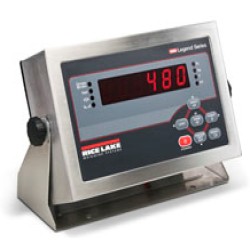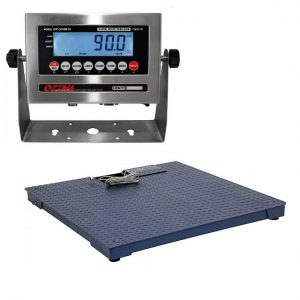From the farm to the dinner table, weighing is a very important part of nearly every stage of livestock handling, meat production and point of sale. Whether at the ranch, processing facility, shipping department or deli, meat should be weighed frequently to ensure quality and compliance with food safety regulations.
Livestock weighing is a crucial practice for those in the farming and ranching business. Cattle or hogs that experience frequent weight gain are ideal for breeding, as they result in more meat and a higher return on investment. However, livestock that loses a significant amount of weight might have health issues.
Weighing livestock regularly can help farmers and ranchers decide if they should reduce or increase animal feed. An overweight animal may be a sign that it’s time to wean, whereas an underweight animal may require more feed. Using weight to regulate amounts of feed can help ranchers save money and produce healthier livestock.
Effective livestock weighing requires a highly accurate livestock scale to meet the unique needs of the agriculture industry. Farmers and ranchers should consider if they need a group or single animal weighing, mobility, Legal for Trade certification or other unique scale attributes.

Custom cut wholesale meat business locations are typically a fully USDA operation and often focus on premium custom cuts of meat taking great pride in offering an extensive selection of cuts of beef, pork, lamb, and veal. You can bet each shift, skilled butchers expertly cut and process quality meats to ensure maximum freshness and flavor, adhering to the highest standards of animal welfare and sustainable practices. It could be prime steaks for an upscale steakhouse, succulent pork chops for a neighborhood bar or bistro, or veal for a high end restaurant. These facilities often use food processing scales throughout the production area.
WEIGHING DURING RECEIVING AND PROCESSING
Receiving
As soon as livestock reaches the receiving area, it is weighed with a scale that is Legal for Trade with either NSF, NTEP, or Measurement Canada certification. These certifications provide a standard of accuracy, letting processors know they have received what they paid for. Throughout processing at a butcher and slaughterhouse, the meat is repeatedly weighed to verify product quality assurance.
Processing
Weighing raw food during processing is a key component of quality and classification compliance. Depending on the type of product and stage of processing, the material can be weighed with a floor scale, bench scale or a checkweigher.
It is important to invest in a stainless steel floor scale that complies with sanitary design standards and can sustain repeated washdowns to avoid bacterial build-up and cross-contamination when weighing different batches of raw food. If you are using weight scales for meat processing, many industrial environments typically use less expensive mild steel (painted) floor scales, however, highly sanitary and washdown areas in processing plants require scales made of stainless steel.
Bench scales can be used for classifying product weights and performing quality checks.
Checkweighers, scales with under / ACCEPT / over lights, are used to verify that material on the production line is not higher or lower than a predetermined weight. Check weighing scales are used to physically reject products that exceed or do not meet the preset weight to ensure each container legally has enough product without giving away extra. Metal detecting features are optional and can be used to prevent metal pieces from contaminating the product.
WEIGHING DURING SHIPPING
Once finished meat product reaches the shipping area, it is ready to be sent to processors, restaurants or to consumers. It is important to keep in mind that raw meat should never be handled in areas where finished product is shipped out, as this can present sanitation and safety issues.

If you’re using weight scales for meat processing, before the meat can be shipped, weight must be captured. If the outgoing meat is being sold based on its weight, it must be weighed with a Legal for Trade scale. This could be done with a floor scale for large amounts of meat sold in bulk or with a smaller scale, such as a counter top scale, for pre-packaged smaller containers of meat.
These outbound shipments must also be weighed to determine the carrier costs for shipments. Carriers base their costs on actual weight and dimensional weight, comparing the two and basing handling fees for a shipment on the larger of the two. Additionally, if the meat is being transported in a semi-tractor-trailer, that vehicle may need to be weighed on a truck scale to ensure compliance with regulations regarding vehicle weight on specific roads.
We offer a wide variety of these types of weight scales for meat processing. Please browse our website or contact customer service if you need some assistance choosing the right scales for your meat processing facility.